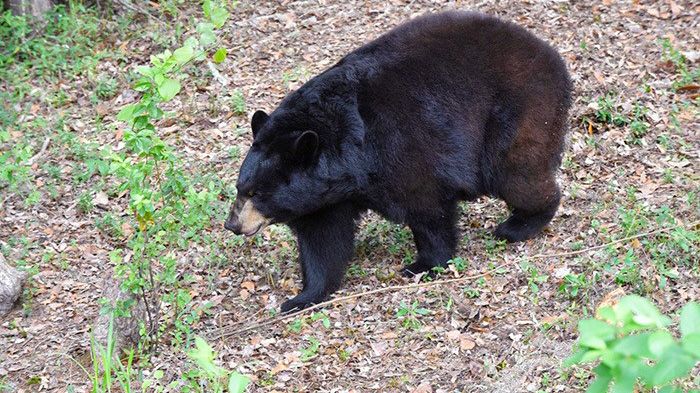FLORIDA — As Florida’s black bear population starts their seasonal increase in activity, the Florida Fish and Wildlife Conservation Commission is reminding residents to follow “BearWise” practices to prevent negative interactions with bears.
During the fall, Bears search for more food to store up for the winter, even in Florida.
According to FWC, an adult bear needs to consume 20,000 calories a day during this season, and when given the opportunity, bears will take advantage of unsecured trash cans and bird feeders.
“People can make a big difference in preventing conflicts with hungry bears by securing or removing potential food attractants such as garbage or birdseed,” said Mike Orlando, FWC’s Bear Management Program Coordinator. “When bears can’t find a food source in your yard or neighborhood, they’ll move on.”
Here are several “BearWise” Basics FWC recommends Floridians to follow:
1: Never feed or approach bears
Feeding bears can make them lose their natural fear of people.
It is illegal in Florida to intentionally feed bears or leave out food or garbage that will attract bears and cause conflicts.
Getting close to a wild animal is dangerous.
2: Secure food and garbage
Store garbage in a sturdy shed or garage and then put it out on the morning of pickup rather than the night before.
If not stored in a secured building, modify your existing garbage can to make it more bear-resistant or use a bear-resistant container.
Secure commercial garbage in bear-resistant dumpsters.
Protect gardens, beehives, compost and livestock with electric fencing.
Pick ripe fruit from trees and bushes and remove fallen fruit from the ground.
3: Remove or secure bird feeders
Remove bird feeders where bears are present.
If bird feeders are left up, only put enough food out for birds to finish eating before dark
4: Never leave pet food outdoors
Feed pets indoors.
If feeding pets outdoors, only put food outside for short time periods and bring in leftover food and dishes after each feeding.
5: Clean and store grills
Clean and degrease grills and smokers after each use.
If mobile, store them in a secure shed or garage.
6: Alert neighbors to bear activity
If you see a bear, let your neighbors know.
Share tips on how to avoid conflicts with bears.
Encourage your homeowner’s association or local government to institute bylaws or ordinances to require trash to be kept secure.
While black bears are not typically aggressive toward humans, they still can injure people and pets when they feel threatened. FWC said female bears with cubs are usually defensive, and dogs can trigger defensive behaviors from bears.
Wildlife officials say 60% of bear attacks in Florida involve dogs. FWC suggests walking your dog on a non-retractable leash and keeping them close. And before letting your dog outside at night, FWC suggests flipping lights on and off, and banging on the door to alert bears and other wildlife.
And while driving on rural highways at dawn and dusk, FWC wants to remind drivers to slow down and be aware of bear crossing areas.
For any resident that has bear concerns, go to myfwc.com/contact, and click on “Contact Regional Offices” to find the number for your region.
To report an injured, orphaned or dead bear, along with reporting harm or intentional feeding of a bear, call the FWC’s Wildlife Alert Hotline at 888-404-FWCC (3922).
For more information and tips on bears, visit BearWise.org.



